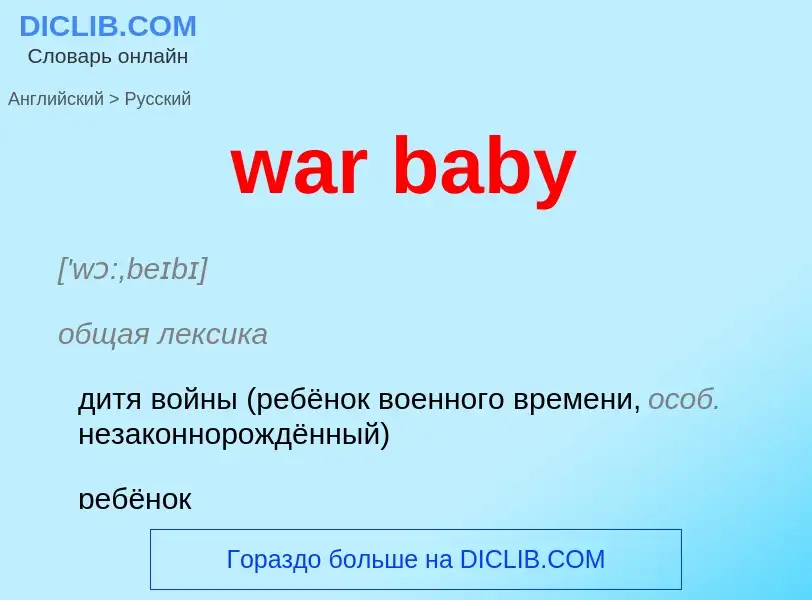Μετάφραση και ανάλυση λέξεων από την τεχνητή νοημοσύνη ChatGPT
Σε αυτήν τη σελίδα μπορείτε να λάβετε μια λεπτομερή ανάλυση μιας λέξης ή μιας φράσης, η οποία δημιουργήθηκε χρησιμοποιώντας το ChatGPT, την καλύτερη τεχνολογία τεχνητής νοημοσύνης μέχρι σήμερα:
- πώς χρησιμοποιείται η λέξη
- συχνότητα χρήσης
- χρησιμοποιείται πιο συχνά στον προφορικό ή γραπτό λόγο
- επιλογές μετάφρασης λέξεων
- παραδείγματα χρήσης (πολλές φράσεις με μετάφραση)
- ετυμολογία
war baby - translation to ρωσικά
['wɔ:,beɪbɪ]
общая лексика
дитя войны (ребёнок военного времени, особ. незаконнорождённый)
ребёнок
родившийся во время войны (особенно внебрачный)
разговорное выражение
офицер военного времени
новобранец
['beibifɑ:m]
существительное
общая лексика
семья
принимающая детей на воспитание за плату
Ορισμός
Βικιπαίδεια
War children are those born to a local parent and a parent belonging to a foreign military force (usually an occupying force, but also military personnel stationed at military bases on foreign soil). Having a child by a member of a belligerent force, throughout history and across cultures, is often considered a grave betrayal of social values. Commonly, the native parent (usually a woman) is disowned by family, friends, and society at large. The term "war child" is most commonly used for children born during World War II and its aftermath, particularly in relation to children born to fathers in German occupying forces in northern Europe. In Norway, there were also Lebensborn children. The discrimination suffered by the local parent and child in the postwar period did not take into account widespread rapes by occupying forces, or the relationships women had to form in order to survive the war years.

